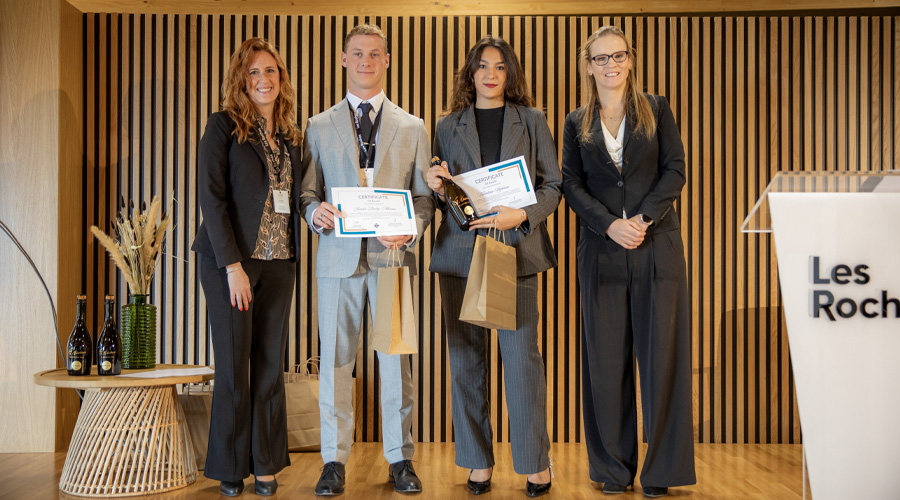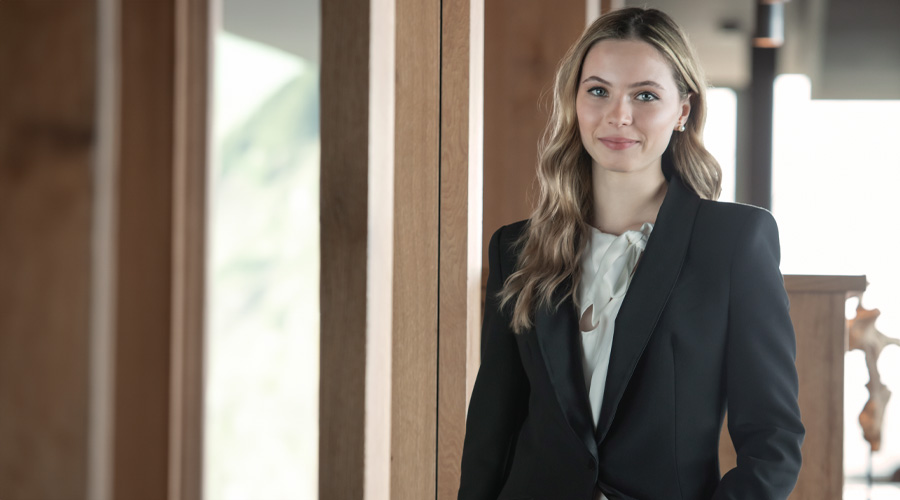While many Les Roches students were away for their summer holidays, life on campus at Bluche was buzzing with a very special event: International Baccalaureate World Student Conference 2016. Around 200 IB students from nations across the world came to explore this year’s conference topic, “Global Citizenship: Exploring Individual and Collective Responsibilities.”
With engaging guest speakers, thrilling sports and fun social activities, the week-long event was a great opportunity for participants to learn while experiencing the Swiss Alps and “Les Roches way of life.”
And while the conference was geared towards high school students, there was something for everyone in the fascinating talks given by the IBWSC’s prominent guest speakers. As our speakers from leading institutions and organizations confirmed, “global citizenship” is a concept that affects us all.
But, what does “global citizenship” mean?
Working towards the comm on good was one theme that emerged at the conference. UNCTAD Chief of Partnership Initiatives Christiane Stepanek-Allen kicked off the week by presenting the United Nations’ Sustainable Development Goals for 2030 — a list of 17 aspirations, ranging from ending poverty to achieving gender equality, which have been defined as the key challenges facing the world.
on good was one theme that emerged at the conference. UNCTAD Chief of Partnership Initiatives Christiane Stepanek-Allen kicked off the week by presenting the United Nations’ Sustainable Development Goals for 2030 — a list of 17 aspirations, ranging from ending poverty to achieving gender equality, which have been defined as the key challenges facing the world.
So who’s responsible for meeting these goals? As Stepanek-Allen pointed out, the answer is “everyone.” By taking action wherever we can make the most impact — for example, in local communities — we can all make a difference.
In order to take initiative, knowledge is key. According to INSEAD Adjunct Professor of Strategy Dr. Michael Shiel, [quote]The biggest challenge of global citizenship is informing yourself, because otherwise we end up in denial.[/quote] He also stressed, “Global citizenship is about understanding that we’re not trying to give people things or do things to them, we’re trying to make it possible for them to live — not only materially — but with dignity.” At the same time, businesses also have a role to play: Business leaders should ask themselves what they can do for their customers and how they can create social value.
How can we make a difference?
 One inspiring story was given by the youngest speaker at the IBWSC, 20-year-old University of Melbourne student Dominique Schell. At the age of 10, Schell was diagnosed with osteosarcoma, a rare form of bone cancer. As a result, she went through countless treatments and operations during her childhood and early adulthood.
One inspiring story was given by the youngest speaker at the IBWSC, 20-year-old University of Melbourne student Dominique Schell. At the age of 10, Schell was diagnosed with osteosarcoma, a rare form of bone cancer. As a result, she went through countless treatments and operations during her childhood and early adulthood.
The experience made Schell want to do something to support young patients with sarcoma, and in 2015, she created Crutch 4 Sarcoma. Growing naturally from an initial idea for a charity marathon on crutches, today Crutch 4 Sarcoma raises awareness and funds for sarcoma research through charity events and online campaigns.
How do we start thinking like global citizens?
 To start with, we need to understand the diversity of our identities and values. People are far more complex than their nationality, as Les Roches Lecturer Dr. Caroline Pulfrey showed, and understanding our own values — as well as those of others — is key to solid leadership and conflict resolution.
To start with, we need to understand the diversity of our identities and values. People are far more complex than their nationality, as Les Roches Lecturer Dr. Caroline Pulfrey showed, and understanding our own values — as well as those of others — is key to solid leadership and conflict resolution.
Meanwhile, balanced and informed leadership is essential to battling the global problems described by World Economic Forum Head of Eurasia Anastasia Kalinina: stark realities such as the fact that nearly half of the world’s population lives on less than $2.50 per day, or 1 billion people lack access to healthcare. As Kalinina put it, [quote]You have to love the people that your government doesn’t want you to love.[/quote]
An appreciation of cultural differences and diversity opens the doors to a sense of shared responsibility and global community. And that mindset is crucial for individuals and businesses to become actors for change. As Shiel said: “It’s your world — take care of it.”



